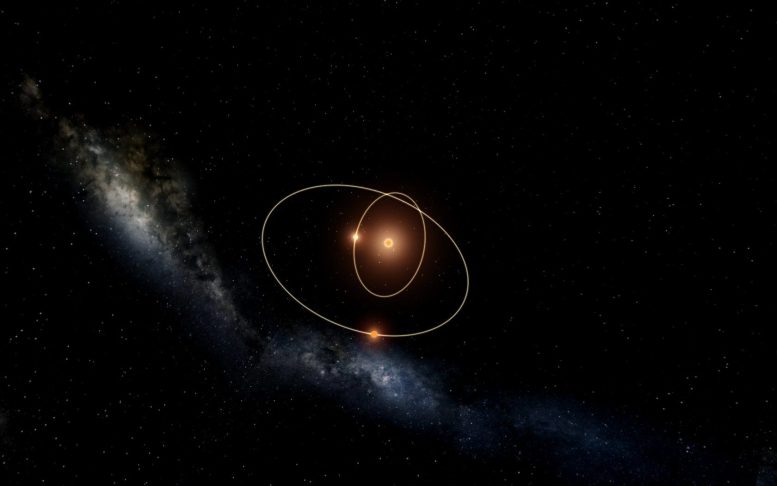Technion researchers have found an effective solution to the famous age-old, three-body problem in physics.
The three-body problem is one of the oldest problems in physics: it concerns the motions of systems of three bodies – like the Sun, Earth, and the Moon – and how their orbits change and evolve due to their mutual gravity. The three-body problem has been a focus of scientific inquiry ever since Newton.
When one massive object comes close to another, their relative motion follows a trajectory dictated by their mutual gravitational attraction, but as they move along, and change their positions along their trajectories, the forces between them, which depend on their mutual positions, also change, which, in turn, affects their trajectory et cetera. For two bodies (e.g. like Earth moving around the Sun without the influence of other bodies), the orbit of the Earth would continue to follow a very specific curve, which can be accurately described mathematically (an ellipse).
However, once one adds another object, the complex interactions lead to the three-body problem, namely, the system becomes chaotic and unpredictable, and one cannot simply specify the system evolution over long time-scales. Indeed, while this phenomenon has been known for over 400 years, ever since Newton and Kepler, a neat mathematical description for the three-body problem is still lacking.

Star orbits in a three-body system. Credit: Technion
In the past, physicists – including Newton himself – have tried to solve this so-called three-body problem; in 1889, King Oscar II of Sweden even offered a prize, in commemoration of his 60th birthday, to anybody who could provide a general solution. In the end, it was the French mathematician Henri Poincaré who won the competition. He ruined any hope for a full solution by proving that such interactions are chaotic, in the sense that the final outcome is essentially random; in fact, his finding opened a new scientific field of research, termed chaos theory. READ MORE...
